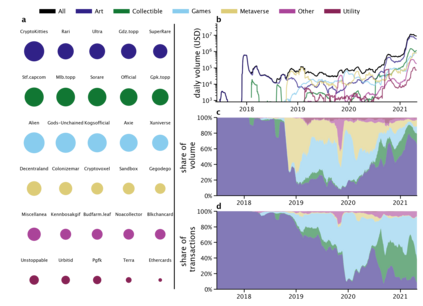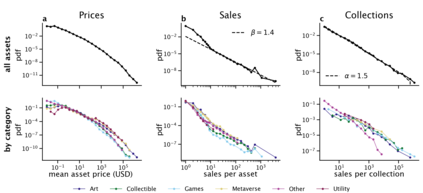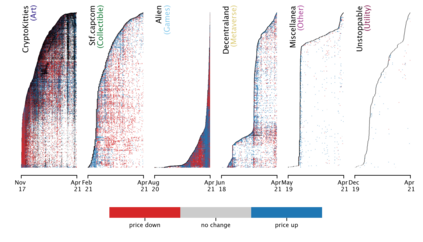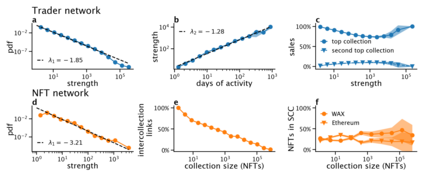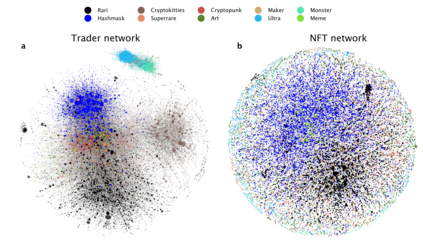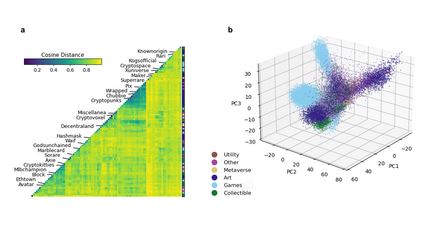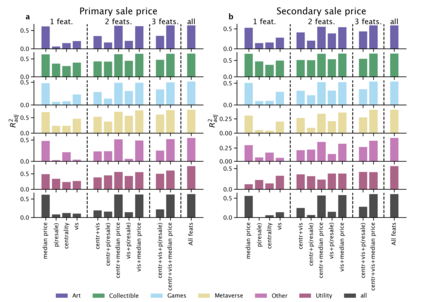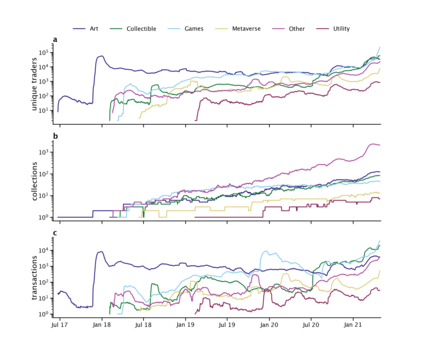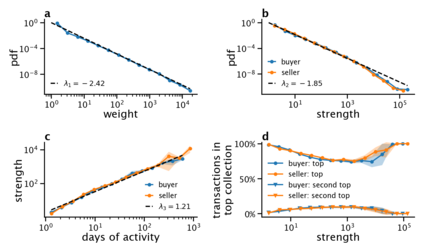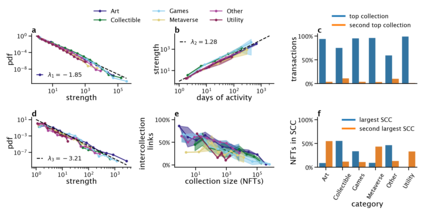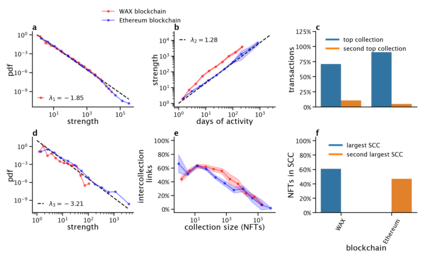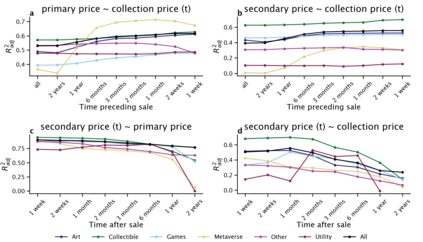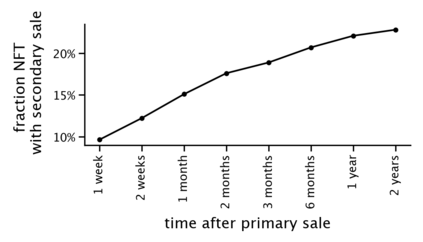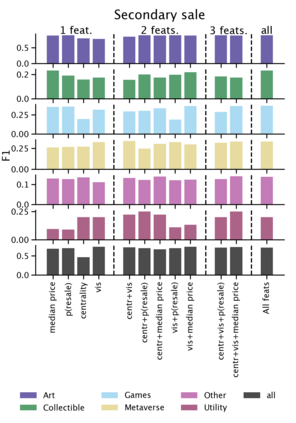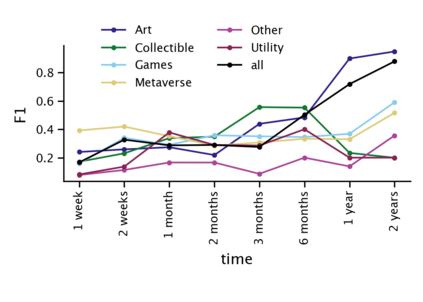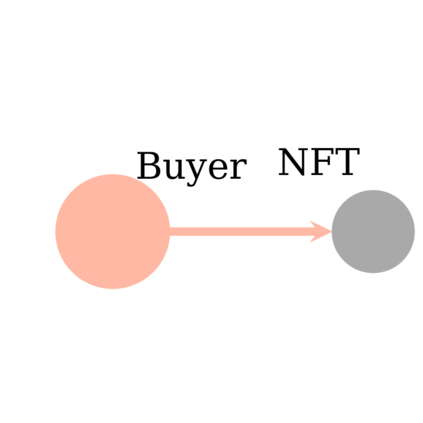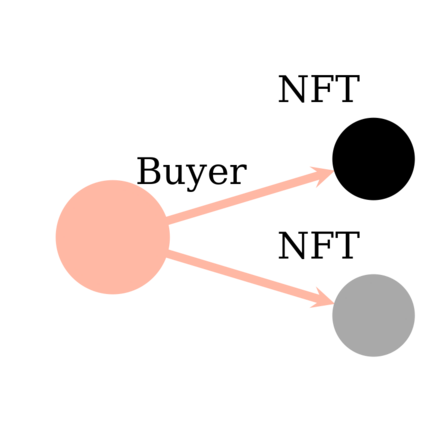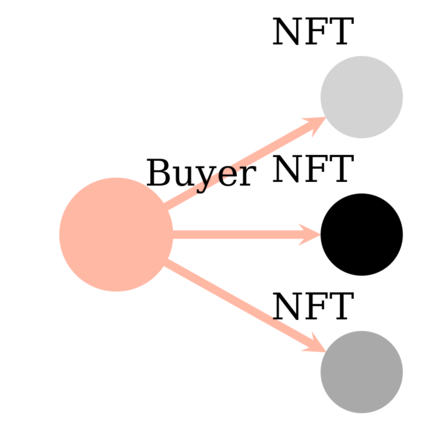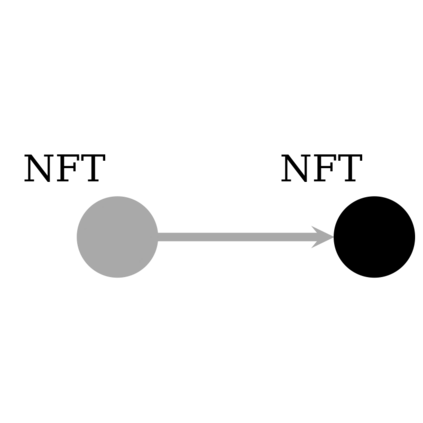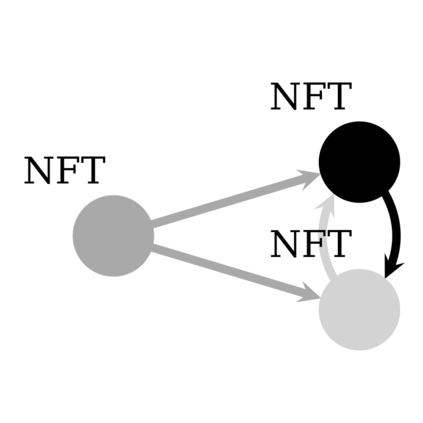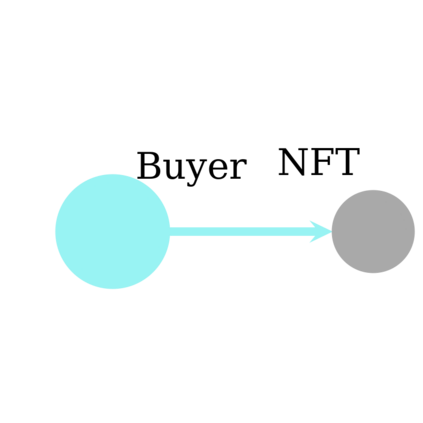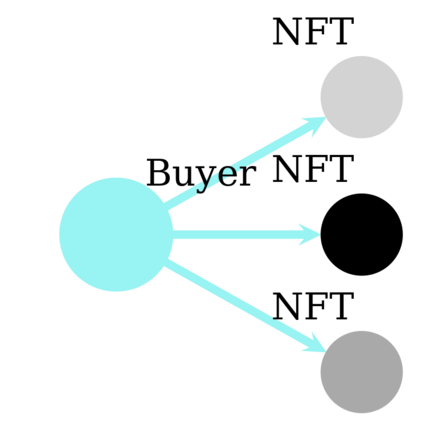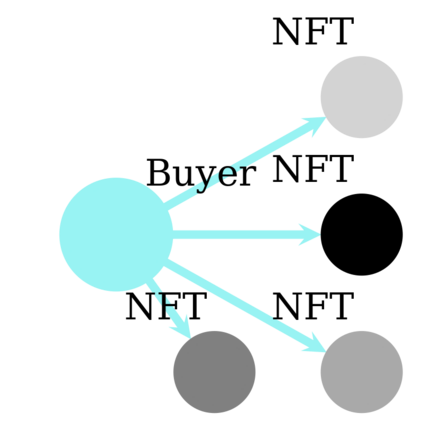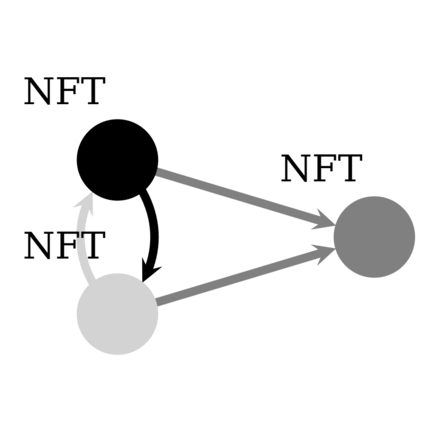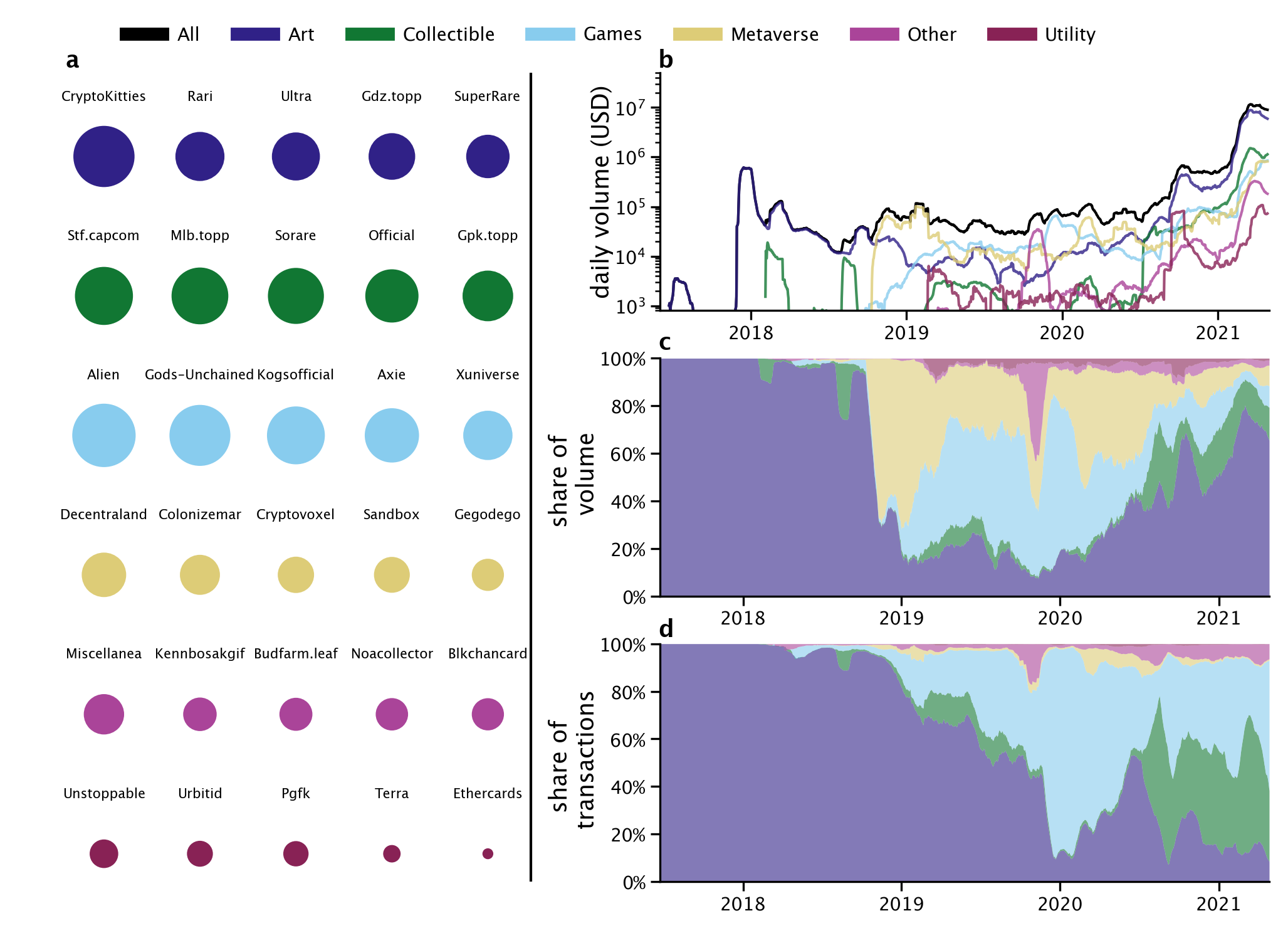Non Fungible Tokens (NFTs) are digital assets that represent objects like art, collectible, and in-game items. They are traded online, often with cryptocurrency, and are generally encoded within smart contracts on a blockchain. Public attention towards NFTs has exploded in 2021, when their market has experienced record sales, but little is known about the overall structure and evolution of its market. Here, we analyse data concerning 6.1 million trades of 4.7 million NFTs between June 23, 2017 and April 27, 2021, obtained primarily from Ethereum and WAX blockchains. First, we characterize statistical properties of the market. Second, we build the network of interactions, show that traders typically specialize on NFTs associated with similar objects and form tight clusters with other traders that exchange the same kind of objects. Third, we cluster objects associated to NFTs according to their visual features and show that collections contain visually homogeneous objects. Finally, we investigate the predictability of NFT sales using simple machine learning algorithms and find that sale history and, secondarily, visual features are good predictors for price. We anticipate that these findings will stimulate further research on NFT production, adoption, and trading in different contexts.
翻译:“非易燃 Tokens”(NFTs)是代表艺术品、可收集物品和游戏中物品等物品的数字资产。 它们通常在网上交易,经常使用加密货币,通常在密链上的智能合同中编码。 2021年,当市场销售创纪录时,公众对NFTs的注意力就爆发了,但对其市场的总体结构和演变却知之甚少。 在这里,我们分析了2017年6月23日至2021年4月27日主要从Etheimum和WAX链块中获取的470万新福特交易的610万个数据。 首先,我们确定市场统计特性。 其次,我们建立互动网络,显示贸易商通常专门关注与类似物品相关的NFTs,并与交换同类物品的其他贸易商形成紧密的集群。 第三,我们根据其视觉特征将与NFTs相关的物品组合在一起,并显示收藏中含有视觉等同物体。 最后,我们利用简单的机器学习算法调查NFT的可预测性,发现销售历史和第二个视觉特征是良好的价格预测因素。 我们预计这些研究结果将进一步刺激对不同的生产环境的研究。

